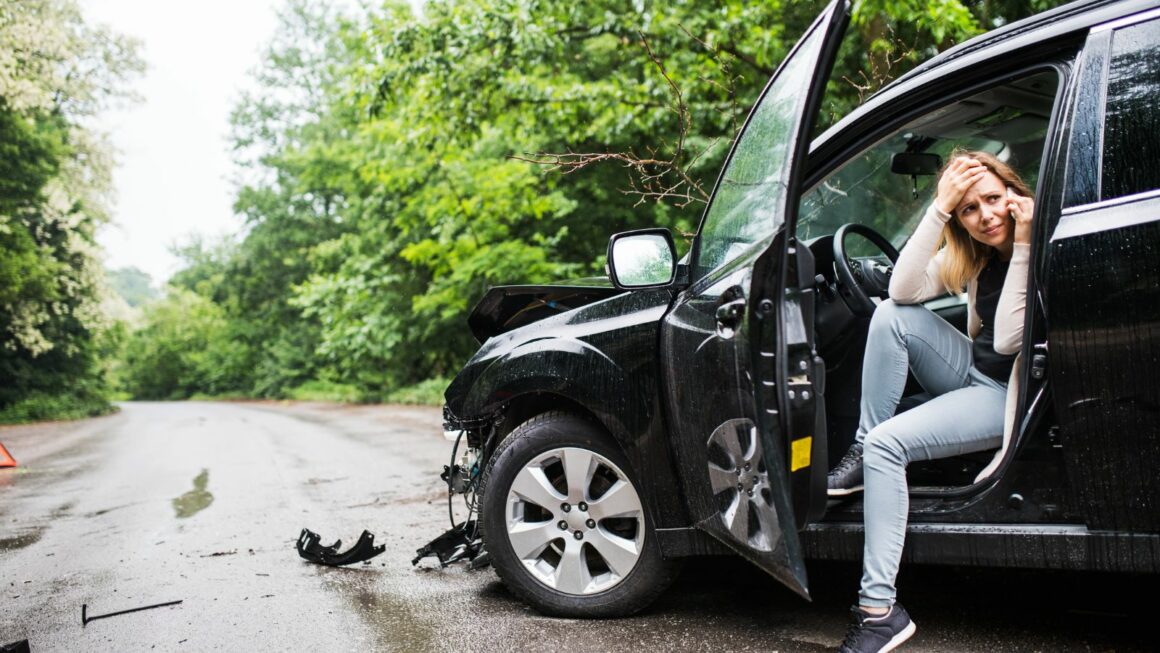According to statistics, car accidents are one of the most common unwanted events worldwide. Considering this, it is essential to know what to do in case you suffer an accident on the road.
In this post, we will explain why it is important to be aware of all the details related to a vehicle accident, how to deal with your insurance company, and what to do in case your car is declared a total loss.
Steps to Take After a Car Accident
Although being involved in a car accident can be an unpleasant experience, you must know what to do and how to act in a situation like this.
Ensure safety and check for injuries
If you are involved in a car accident, the first thing you should do is move to a safe place. If other people are involved, try to help them get out of the traffic. If injuries are serious or there is significant damage, contacting a Los Angeles car accident lawyer can help you navigate the legal complexities and protect your rights.

While you are in a safe area, evaluate your body and validate whether you have any injuries. Do the same with other people. If you detect any injury, you should immediately contact emergency services. You should also call emergency services in case the accident obstructs normal traffic.
Contact the authorities
Contacting the authorities to report the accident is essential:
- This is a legal requirement in almost the entire country.
- The report issued by the police is an official record of what happened.
- Most insurance companies require a police report to proceed with the corresponding coverage.
Exchange information
When exchanging information with the other driver(s) involved in the accident, it is essential to gather the following details:
- Basic data of the other drivers, such as name, contact numbers, room address, etc.
- Name and contact of the other drivers’ insurance company and their policy number.
- It is also important that you write down the data of the other vehicles involved. We refer to data such as license plate number, brand, model, color, year, etc.
- Obtain the license number and issuing status of other drivers.
Document the scene
Documenting the accident scene, including the condition of your car, is crucial for insurance claims and legal proceedings. Here is what to do:
- Take photos.
- Note details.
- Document damage.
- Record statements.
- Make Notes.
Notify your insurance company.
Contacting your insurer to report the accident and initiate the claims process is an essential step following a car accident. When communicating with your insurer, provide the following information:
- Accident details.
- Other driver’s information.
- Vehicle damage.
If you suspect your car might be totaled, be prepared to communicate the following information to your insurer:
- The extent of damage.
- Security aspects.
- Value of your vehicle.
Assessing your Car’s Condition Post-accident
Thoroughly reviewing the condition of your vehicle after the accident is an essential step in determining the damage it suffered and determining whether it should be repaired or replaced.
Understanding if your car is totaled
A totaled car, also known as a total loss, is a vehicle that has sustained damage to the extent that it is deemed uneconomical or unsafe to repair. Insurance companies, based on various factors, including the cost of repairs compared to the car’s value, local regulations, and safety considerations, typically determine whether a car is totaled.
A car can be considered totaled if the cost of repairs exceeds a certain percentage of its actual cash value (ACV), which often ranges from 50% to 75%, depending on the insurance provider and jurisdiction.
On the other hand, insurance companies also consider another cost factor: if repairing the vehicle is more expensive than the car itself, your private means of transportation will be declared a total loss.
For more information, you can read it here.
Steps to take if your car is driveable
To determine if it is safe to continue driving your car after a severe accident, you must take into account several aspects, such as the severity of the damage, the mechanical condition of the vehicle, and the possible safety risks:
- Severity of damage.
- Mechanical condition.
- Safety risks.
Legal and insurance considerations for driving a totaled car:
- Insurance coverage: Check with your insurance provider to understand your coverage for driving a totaled car.
- Liability: Understand the legal implications of driving a totaled car, especially if your insurance company has declared it.
- Title status: Depending on local regulations, a totaled car may have a salvage title, which indicates that the insurance company has declared it.
Handling the Aftermath of the Accident
Evaluating the consequences of a vehicle accident is not easy, but it is important to know how to proceed to protect yourself economically and legally.

Seek medical attention
Go to a doctor and request a comprehensive evaluation.
Follow up with your insurance.
Make sure you have all the documents that you must deliver to your insurance company:
- Official accident report.
- Medical record and report.
- Budget for the repairs your vehicle requires.
- Statements from witnesses to the accident.
- All the photographs you have of the event.
Repairing or replacing your vehicle
Among the options you have to have a functional and safe vehicle again are the following:
- If your insurance policy covers the damage and repair of your car, you can request this alternative and carry out the repairs at an authorized workshop.
- If your car is declared totaled by your insurance company, you can accept a settlement from your insurer for the actual cash value (ACV) of the car.
Conclusion
In this publication, we detailed all the relevant aspects of a vehicle accident, the steps to follow to report the event, and the options regarding recovering your private means of transportation. We also discussed the alternatives and actions to take in case your vehicle is declared a total loss.
On the other hand, we discussed the best tips to implement so that you document and record all the necessary data about the accident, with the idea that you can protect your rights and your economic and legal interests in a situation like this.


More Stories
How to Make a Seamless Carousel Post on Instagram?
Why Some Posts Get More Instagram Likes Than Others
Are Niche Accounts the Secret to Gaining Loyal TikTok Followers?